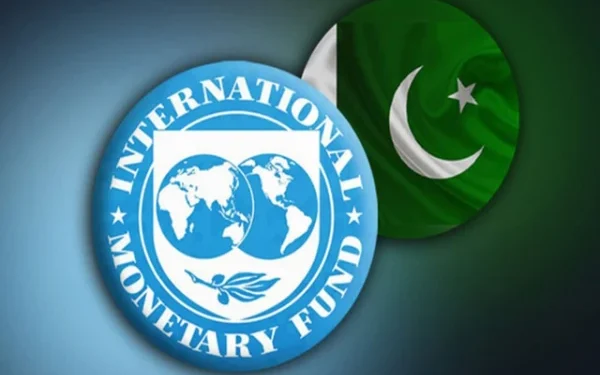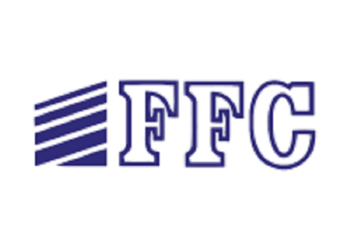Islamabad: Fund Recommends Structural Reforms in Public Finance Management
In a significant development that could reshape Pakistan’s approach to development spending, the International Monetary Fund (IMF) has recommended that members of parliament’s (MPs) development schemes be merged into the Public Sector Development Program (PSDP). The global lender has emphasized that Pakistan must ensure transparency, reduce political favoritism, and avoid arbitrary budgetary changes if it wishes to stabilize its fragile economy and maintain credibility with international partners.
IMF Calls for Rules-Based Project Approvals
According to official sources, the IMF has expressed concern that development projects are being approved outside of established rules and procedures, often on a political or preferential basis. The Fund has urged the Pakistani government to approve MPs’ projects strictly under regulatory frameworks instead of giving them priority treatment.
The IMF’s recommendations highlight a recurring issue in Pakistan’s governance: the politicization of development funds. While the executive committee of the National Economic Council (ECNEC) traditionally approves development projects after scrutiny, a parallel process has emerged in which the Steering Committee, led by former finance minister Ishaq Dar, has been approving MPs’ schemes without rigorous evaluation.
Most of these schemes, the IMF pointed out, fall under the jurisdiction of local governments and should not be funded at the federal level, as this practice burdens the national budget unnecessarily.
MPs’ Schemes and Fiscal Burden
The practice of allocating large sums to MPs’ schemes has grown in recent years. In the last fiscal year, the government spent Rs61 billion on such schemes, and in the current fiscal year, Rs70 billion has been allocated.
Critics argue that these schemes, often referred to as “constituency development funds”, are designed more to serve political interests than national priorities. By funding small-scale projects in MPs’ constituencies, ruling parties attempt to secure political loyalty and electoral support, but the economic impact of such schemes remains questionable.
The IMF, in its Governance and Corruption Diagnostics Assessment Report, stressed that the PSDP must be made transparent, efficient, and affordable, and that MPs’ schemes should be consolidated into the PSDP rather than being run separately.
Duplication of Projects and Wastage of Resources
A recurring problem highlighted by the IMF is the duplication of development projects. Every incoming government announces a new wave of projects without completing those already in progress. Given Pakistan’s limited fiscal space and scarce resources, this practice delays project completion and increases costs significantly.
The IMF warned that without strict prioritization, Pakistan risks running an overcrowded PSDP, where hundreds of projects remain underfunded and incomplete. The Fund has advised the Ministry of Planning to restrict PSDP to only the most critical and high-priority projects, aligning with national development goals and available resources.
Political Influence Weakening Development Program
The report observed that political exigencies often distort the allocation of development funds. Federal resources are spent on projects that fall outside the responsibility of the central government, undermining the effectiveness of the PSDP.
Small-scale constituency-level projects, such as the construction of local roads, small bridges, and water supply schemes, are often added to the PSDP despite being the mandate of provincial and local governments. This not only strains the federal budget but also weakens decentralized governance in Pakistan.
The IMF noted that funds allocated for these smaller schemes are often misused or diverted, further diminishing public trust in fiscal management.
Weaknesses in Pakistan’s Public Finance Management
Beyond the issue of MPs’ schemes, the IMF report criticized Pakistan’s overall public finance management framework as weak and lacking transparency.
- The Ministry of Finance has failed to present the annual budget strategy paper to the federal cabinet for approval, a practice contrary to established rules.
- The pre-budget consultation process with parliament and cabinet remains superficial, depriving elected representatives of a meaningful role in shaping fiscal policy.
- Sudden or mid-year budget adjustments are often made without parliamentary approval, undermining the principle of parliamentary sovereignty.
The IMF has called on Pakistan to strengthen parliamentary oversight and ensure that all budgetary decisions, including supplementary grants, go through the appropriate legislative channels.
Recommendations on Budgeting and Fiscal Strategy
In its detailed assessment, the IMF made several recommendations to improve Pakistan’s budgeting practices and fiscal discipline:
- Early Submission of Budget Strategy Paper:
The Ministry of Finance should submit the budget strategy paper by January each year, providing sufficient time for parliamentary debate and cabinet review. - Inclusion of Macroeconomic Indicators:
Budget documents should include macroeconomic and financial indicators, such as GDP growth forecasts, inflation trends, and debt sustainability analysis, to improve transparency. - Review of Fiscal Projections:
After the close of each fiscal year, the government should review the accuracy of its budget estimates and macroeconomic projections to identify weaknesses and improve forecasting models. - Avoiding Arbitrary Budget Adjustments:
The practice of making half-yearly or sudden budget adjustments without parliamentary approval should be discontinued to uphold the supremacy of parliament.
Emergency Pool for Natural Disasters
Another significant recommendation is the creation of an emergency fiscal pool to handle unforeseen circumstances such as natural disasters, pandemics, or external shocks.
Pakistan, being highly vulnerable to climate change, faces recurring floods, earthquakes, and other natural calamities. The IMF believes that having a dedicated emergency fund would not only improve disaster response but also reduce the need for abrupt budget reallocations that disrupt planned development spending.
Public Procurement Reforms
The IMF has also highlighted concerns regarding public procurement practices. The report proposed an amendment to the Public Procurement Regulatory Authority (PPRA) law to eliminate preferential treatment in government contracts.
Currently, certain government agencies and charitable organizations receive preferential procurement advantages, which, according to the IMF, distort competition and increase corruption risks.
By removing these exemptions, Pakistan could foster a more competitive, transparent, and cost-effective procurement system, saving billions in public funds.
Political and Economic Implications
The IMF’s recommendations carry significant political and economic implications for Pakistan.
- For the Government: Implementing these reforms may reduce the ability of ruling parties to use development funds as political tools, which could lead to resistance from MPs.
- For the Economy: Greater transparency and efficiency in PSDP could improve fiscal stability, reduce wastage, and create space for more impactful infrastructure projects.
- For Donors and Lenders: A stronger governance framework would enhance Pakistan’s credibility with international lenders and donors, potentially unlocking more concessional financing.
However, analysts warn that the success of these reforms depends on the political will of the government, which has historically resisted IMF conditions that curtail discretionary spending.
Conclusion: A Call for Structural Reform
The IMF’s push to merge MPs’ schemes into the PSDP and enforce fiscal discipline underscores the urgent need for structural reform in Pakistan’s governance. While constituency-based schemes may provide short-term political gains, they undermine the efficiency and transparency of development spending at the national level.
By implementing the IMF’s recommendations—strengthening parliamentary oversight, improving budget transparency, and reforming procurement laws—Pakistan could move toward a more sustainable fiscal path and ensure that scarce public resources are used for projects that genuinely contribute to national development and economic stability.
The question remains whether Pakistan’s political leadership has the resolve to sacrifice political expediency for long-term economic reform. With rising debt, recurring fiscal deficits, and increasing reliance on IMF support, the stakes could not be higher.

























